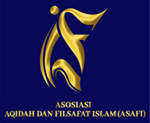Konsep Etika Epikuros dan Problem Media Sosial
Abstract
In the last few decades, one of the ethical problems that has taken a lot of public attention is the hoax problem on social media. Social media, which was originally created as a medium to facilitate the delivery of messages and information, is actually being misused to spread false news which eventually breeds hatred and animosity. One philosopher who is famous for his thoughts on ethical concepts, namely Epicurean. This article will discuss how the Epikuros ethical concept and its relevance to social media problems. This paper is classified in library research and uses the hermeneutical descriptive method. The typology of Epicurean thought belongs to the ethical theory of hedonism, Epicurean in its ethical thought establishes pleasure or pleasure (hedone) as the highest ideal in human life. The intended enjoyment is not only from the material aspect, but the most important thing is the enjoyment of the soul which is referred to as ataraxia. To achieve ataraxia that is by trying to avoid suffering and anxiety. According to Epicureans, in order to avoid suffering and anxiety, humans must have the attitude of phronesis or prudence, which is interpreted as an attitude of vigilance. When connected with social media problems, this attitude of vigilance is very relevant and important to be owned by every individual as a user of social media, so as not to become part of the chain of hoax distribution.
Full Text:
PDFReferences
Bertens, K. Etika. Yogyakarta: Kanisius, 2013.
———. Sejarah Filsafat Yunani. Yogyakarta: Kanisius, 1989.
Hadiwijono, Harun. Sari Sejarah Filsafat Barat I. Yogyakarta: Kanisius, 2001.
Iqbal, Imam. “Menjelajahi Etika: Dari Arti Hingga Teori.” Dalam Etika: Perspektif, Teori dan Praktik. Yogyakarta: FA Press, 2016.
Juliswara, Vibriza. “Mengembangkan Model Literasi Media yang Berkebhinnekaan dalam Menganalisis Informasi Berita Palsu (Hoax) di Media Sosial.” Jurnal Pemikiran Sosiologi 4, no. 2 (6 November 2017): 142–64.
Laertius, Diogenes. Lives of Eminent Philosophers. Diterjemahkan oleh R. D. Hicks. Vol. 2. London: William Heinemann, t.t.
Mitra, Aditi. “Epicurean Ethics: A Relook.” American International Journal of Contemporary Research 5, no. 1 (Januari 2015).
Mulawarman, Mulawarman, dan Aldila Dyas Nurfitri. “Perilaku Pengguna Media Sosial beserta Implikasinya Ditinjau dari Perspektif Psikologi Sosial Terapan.” Buletin Psikologi 25, no. 1 (23 Juni 2017): 36 – 44.
Rahadi, Dedi Rianto. “Perilaku Pengguna dan Informasi Hoax di Media Sosial.” Jurnal Manajemen dan Kewirausahaan , Vol. 5, no. 1 (30 Juni 2017).
Rapar, Jan Hendrik. Pengantar Filsafat. Yogyakarta: Kanisius, 2015.
Russell, Bertrand. Sejarah Filsafat Barat. Diterjemahkan oleh Sigit Jatmiko. Yogyakarta: Pustaka Pelajar, 2007.
Suseno, Franz Magnis. 13 Tokoh Etika: Sejak Zaman Yunani sampai Abad ke-19. Yogyakarta: Kanisius, 2009.
———. Etika Dasar: Masalah-Masalah Pokok Filsafat Moral. Yogyakarta: Kanisius, 2014.
Tim Penyusun Kamus Pusat Bahasa. Kamus Bahasa Indonesia. Jakarta: Pusat Bahasa, 2008.
Tjahjadi, Simon Petrus L. Petualangan Intelektual. Yogyakarta: Kanisius, 2016.
Weij, P. A. Van der. Filsuf-Filsuf Besar Tentang Manusia. Diterjemahkan oleh K. Bertens. Jakarta: PT Gramedia Pustaka Utama, 2017.
Zaleski, Jeff. Spiritual Cyberspace. Bandung: Mizan, 1999.
http://en.oxforddictionaries.com/definition/prudence, diakses pada tanggal 24 September 2018 pukul 21.07 WIB.
DOI: http://dx.doi.org/10.24042/ijitp.v1i2.5029
Refbacks
- There are currently no refbacks.
Indonesian Journal of Islamic Theology and Philosophy (IJITP) [p-ISSN: 2656-8748, e-ISSN: 2686-4304]
Office: Program Studi Akidah dan Filsafat Islam, Fakultas Ushuluddin dan Studi Agama, Universitas Islam Negeri Raden Intan Lampung, INDONESIA
Jl. Letkol H. Endro Suratmin, Sukarame, Bandar Lampung, Lampung, KP. 34513. Email: ijitp@radenintan.ac.id
Licency:
All articles published by Indonesian Journal of Islamic Theology and Philosophy (IJITP) are licensed under a Creative Commons Attribution-ShareAlike 4.0 International License.












